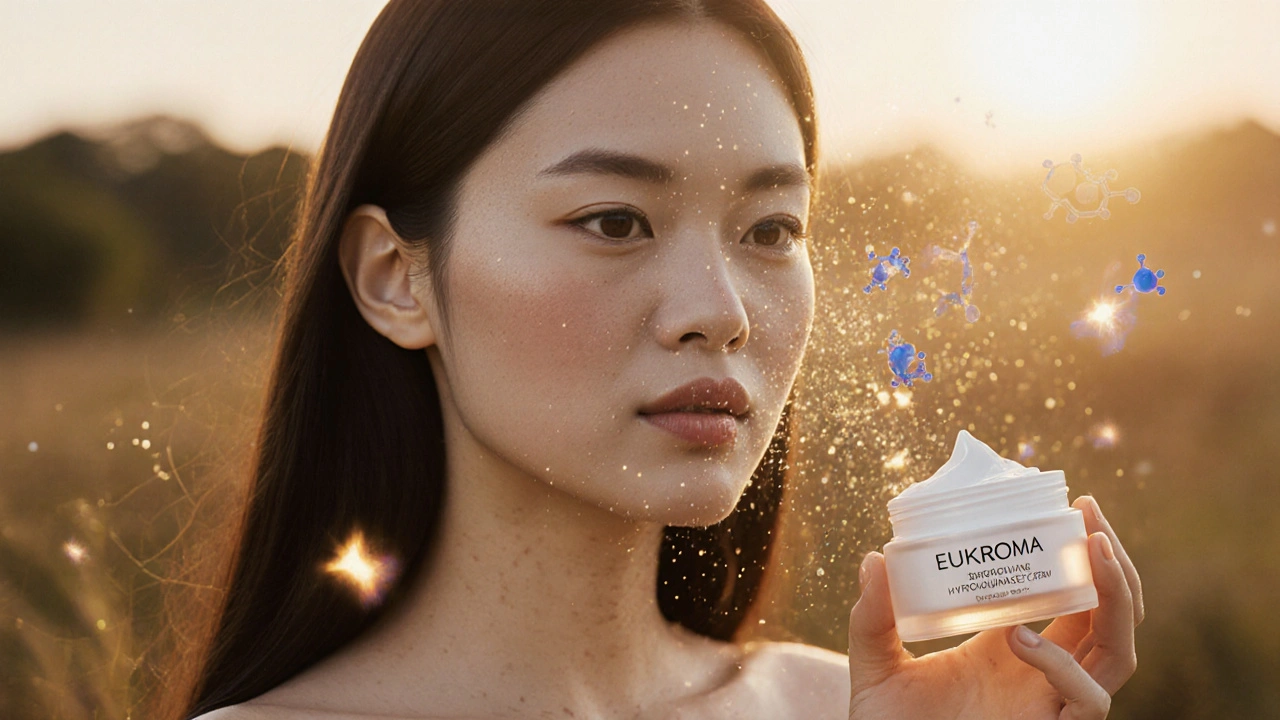When it comes to treating dark spots and uneven skin tone, Eukroma Cream, a topical skin-lightening agent containing hydroquinone. Also known as hydroquinone cream, it's one of the most commonly prescribed treatments for hyperpigmentation caused by sun damage, acne scars, or melasma. But it’s not the only option—and it’s not without risks. Many people turn to Eukroma Cream after trying over-the-counter brighteners that didn’t work, only to find out later that results take weeks, and side effects like irritation or paradoxical darkening can happen.
Hydroquinone, the active ingredient in Eukroma Cream, works by blocking the enzyme that makes melanin. That’s why it’s effective for conditions like post-inflammatory hyperpigmentation, where skin darkens after injury or inflammation. But it’s not a miracle cure. The FDA has restricted its use in some countries because long-term use can cause ochronosis—a rare but permanent blue-black discoloration. That’s why most doctors recommend using it for no longer than 3 to 6 months, and always with sunscreen. If you’re looking for something gentler, alternatives like azelaic acid, a naturally occurring compound used to treat acne and pigmentation or niacinamide, a form of vitamin B3 that reduces melanin transfer are becoming more popular. They don’t work as fast, but they’re safer for daily, long-term use.
People using Eukroma Cream often pair it with retinoids or glycolic acid to boost results, but that can increase skin sensitivity. You’ll also see it compared to other prescription creams like triamcinolone acetonide, a corticosteroid sometimes combined with hydroquinone for inflammatory skin conditions. But steroid combinations aren’t meant for long-term facial use—they can thin the skin. The key is knowing your skin type, the cause of your pigmentation, and whether you need a strong treatment or a slower, safer path.
What you’ll find below is a collection of real-world comparisons and guides on skin treatments that relate to Eukroma Cream. From how hydroquinone stacks up against natural brighteners to what to do when your skin reacts badly, these posts give you the practical details you won’t get from a pharmacy label. Whether you’re trying to fade dark spots after acne, dealing with melasma from hormones, or just tired of uneven tone, the info here helps you make smarter choices—without guesswork.
